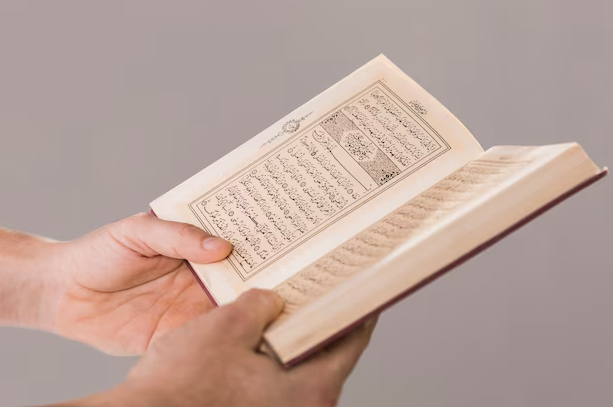
17 May, 2025
Surah Al-Waqiah is the 56th chapter of the Holy Quran, consisting of 96 verses. It holds a special place in the hearts of many Muslims due to the immense spiritual and worldly benefits attributed to its recitation. Commonly referred to as the “Surah of Wealth,” Surah Al-Waqiah is known for its powerful message about the Day of Judgment, the certainty of the afterlife, and the distinct categorization of people based on their deeds.
In this article, we’ll explore the Surah Waqiah benefits in depth, discuss how its recitation impacts one's life, and shed light on authentic narrations regarding this revered chapter of the Quran. Whether you're looking to strengthen your faith, improve your financial condition, or simply deepen your understanding of the Quran, this guide offers comprehensive insights into the benefits of Surah Waqiah.
Surah Al-Waqiah (الواقعة) is a Makki surah, meaning it was revealed in Makkah. Its name, "Al-Waqiah," translates to "The Inevitable Event," referring to the Day of Resurrection. The Surah provides a vivid description of that Day, where people will be divided into three main groups:
-
The Foremost (As-Sabiqoon): Those who are closest to Allah.
-
The People of the Right (Ashab al-Yameen): The righteous believers.
-
The People of the Left (Ashab al-Shimal): The disbelievers and wrongdoers.
Apart from its eschatological themes, the Surah is revered for its profound wisdom, eloquent language, and spiritual significance. Muslims around the world recite it regularly, especially at night, seeking its blessings and divine protection.

2.1 Strengthening Faith and Taqwa
One of the foremost benefits of Surah Waqiah is its ability to reinforce one's faith in the afterlife and accountability. The vivid imagery and warnings in the Surah remind believers of the consequences of their actions and motivate them to live a life of piety.
2.2 Reminder of the Hereafter
The Surah paints a powerful picture of the events of the Last Day, helping readers remain conscious of their purpose in life. This consistent reminder cultivates humility, gratitude, and a sense of urgency to perform righteous deeds.
2.3 Boosting Spiritual Awareness
Reciting Surah Al-Waqiah brings one closer to Allah and helps in achieving spiritual tranquility. Its verses emphasize divine justice, which can bring comfort to those who feel wronged or overwhelmed by worldly challenges.
Among Muslims, one of the most cited Surah Al Waqiah benefits is its impact on sustenance and financial stability. Though interpretations vary, multiple scholars and traditional reports point to its recitation as a means to avoid poverty and attract provision.
3.1 Protection from Poverty
There is a widely shared narration attributed to the Prophet Muhammad (ﷺ):
“Whoever recites Surah Al-Waqiah at night will never suffer from poverty.”
– (Ibn Asakir and Bayhaqi in Shuab al-Iman)
Although the chain of narration is debated among scholars, this hadith has been embraced in Islamic tradition, leading many to make a habit of reciting the Surah every night.
3.2 Increase in Rizq (Sustenance)
Consistent recitation is believed to open the doors of rizq (provision) through both visible and unseen means. Many Muslims who have adopted this practice testify to improvements in their financial situations, career opportunities, and even personal productivity.
3.3 Encouragement for Financial Gratitude
Beyond worldly gain, the Surah teaches readers to reflect on the countless blessings they already enjoy. It lists signs of divine provision—like rain, crops, fire, and sustenance—which cultivate an attitude of contentment and gratitude.
While financial gain is a popular focus, the benefits of Surah Waqiah go well beyond material aspects.
4.1 Emotional Healing
The rhythm and message of Surah Waqiah have a calming effect on the mind. Reciting or listening to the Surah regularly can help relieve anxiety, fear of the unknown, and stress, especially for those overwhelmed by financial or existential concerns.
4.2 Spiritual Confidence
When believers internalize the messages of divine justice and provision, they often develop stronger emotional resilience. Knowing that Allah is the Sustainer (Ar-Razzaq) instills confidence in facing life’s challenges.
There is a special emphasis in Islamic tradition on the nightly recitation of Surah Al-Waqiah. Many scholars recommend making it a daily habit before sleep.
5.1 Nightly Routine for Protection
Reciting the Surah at night serves as both a spiritual shield and a mental cleanser. It redirects one’s thoughts from the distractions of daily life to the more important matters of the afterlife and divine connection.
5.2 Enhancing Sleep Quality
Many believers report that incorporating Surah Waqiah into their nighttime routine helps in achieving peaceful sleep. The Surah's powerful verses soothe the heart and mind, allowing for restful slumber.
To maximize the benefit of reciting Surah Waqiah, it is advisable to combine it with other acts of devotion such as:
-
Making du’a (supplication) afterward
-
Reflecting on the tafsir (interpretation) of the verses
-
Practicing gratitude for blessings received
-
Giving charity regularly as an act of faith in divine provision
These combined practices help anchor the message of the Surah in daily life and make its effects more evident and lasting.
While the narration about Surah Al-Waqiah preventing poverty is frequently cited, some scholars classify it as weak (da’if). However, this does not mean it should be disregarded altogether. In Islamic tradition, weak hadiths are sometimes acted upon in virtuous matters—especially when they do not contradict stronger texts.
Furthermore, the Quran itself states in multiple verses that Allah is the Provider and that righteousness brings blessings. Thus, reciting any portion of the Quran with sincerity can bring about spiritual and worldly benefits.
Read More:
Fasting 3 Days Every Month in Islam
Q1: Is there any authentic hadith about Surah Waqiah preventing poverty?
While the hadith most commonly cited is considered weak by scholars, it is still acted upon in virtuous practices. Many believers find personal benefit in reciting the Surah regularly.
Q2: When is the best time to recite Surah Al-Waqiah?
The ideal time is after Isha prayer before going to bed. However, it can be recited at any time during the day.
Q3: Can women recite Surah Waqiah during menstruation for its benefits?
According to many scholars, women may recite the Quran for remembrance and supplication during menstruation, especially without touching the Mushaf directly. However, opinions differ, so it's best to follow one’s school of thought or consult a trusted scholar.
Q4: How many times should I recite Surah Waqiah to see its benefits?
There is no fixed number. Consistency and sincerity are key. Reciting it daily—especially at night—is a common practice among those seeking its benefits.
Q5: Does reciting Surah Waqiah guarantee wealth?
The Quran is not a magical formula, but a spiritual guide. Reciting Surah Al-Waqiah with understanding and sincere intention can bring blessings, including wealth, through divine will.
Surah Al-Waqiah is more than just a chapter in the Quran—it is a spiritual companion for those seeking divine clarity, emotional strength, and worldly stability. While the material benefits of Surah Waqiah are widely discussed, its greatest value lies in connecting the heart to the Hereafter and nurturing a deeper relationship with the Creator.
Whether you're struggling financially, feeling lost spiritually, or simply want to bring more barakah (blessing) into your life, make the recitation of Surah Al-Waqiah a consistent part of your routine. With reflection, sincerity, and action, the benefits will manifest in ways both seen and unseen.

